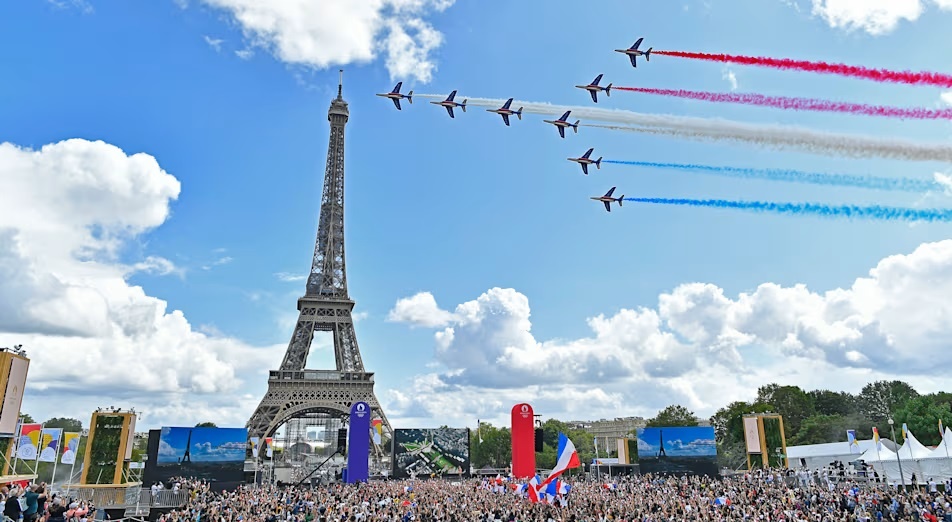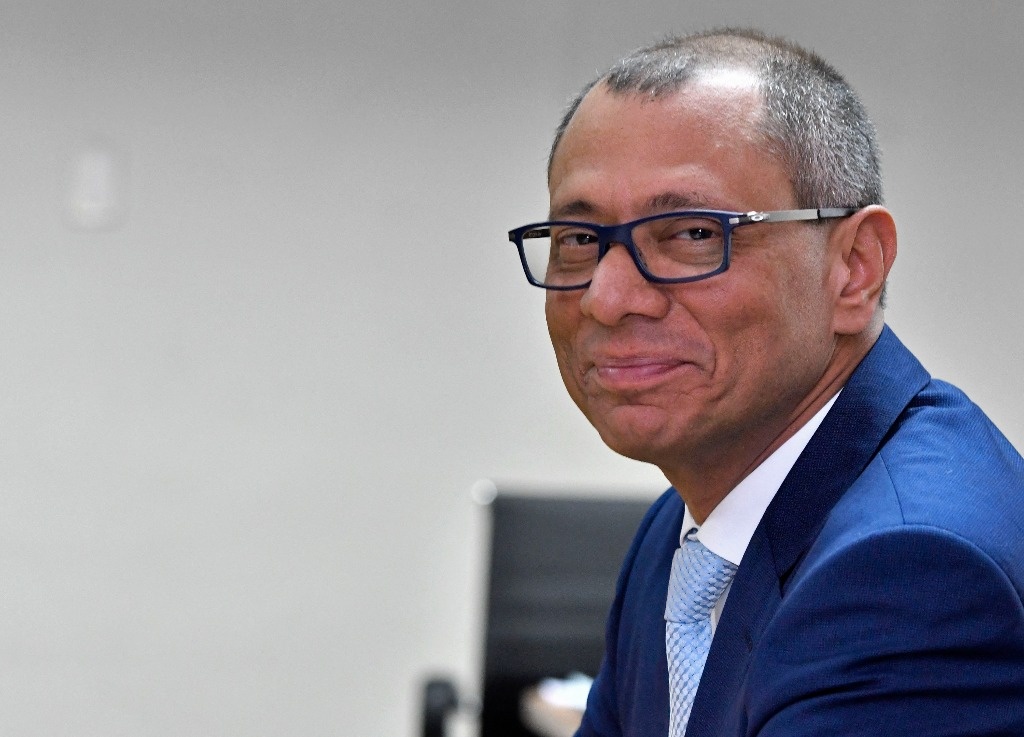Paris. On the outskirts of Paris, an enthusiastic girl is excited that the Olympic and Paralympic Games will end soon.
This is because 10-year-old Lyla Kebbi’s swimming club will inherit an Olympic-size pool. It will be dismantled after the Games and moved from the headquarters in the skyscrapers of the financial district to Sevran, a less prosperous commune in the suburbs of Paris. The pool will be reinstalled and — voila! — Kebbi and her swim team will have an Olympic-sized pool to dive into.
“It’s incredible!” said Kebbi. “I hope it brings us luck,” added her mother, Nora.
In 100 days, the Paris Olympic Games will open with an ambitious ceremony on the Seine River. But the first Olympic event in the capital of France in more than a century will be evaluated more than a sporting spectacle.
Another barometer will be its impact on marginal suburbs far from Paris’ iconic attractions.
With the promise of generating a positive social impact, in addition to less pollution and waste, the city synonymous with romance also seeks a high goal to make future Olympic Games more desirable.
Detractors question its importance in a world grappling with global warming and other emergencies. Potential contending cities to host the Games were so scared that Paris and Los Angeles ended up as the last candidates in 2017, when the International Olympic Committee awarded them the 2024 and 2028 venues, respectively.
After scandals and the spending of 13 billion dollars for the Tokyo Games in 2021 that were delayed by the pandemic, the broken promises of changes in Rio de Janeiro in 2016 and the 2014 Winter Games in Sochi, tainted by the Russian doping and President Vladimir Putin’s invasions of Ukrainian territory, the IOC has a lot to do to quell suspicions.
A virtuous Games in Paris could help the IOC mega event survive in the long term.
Benefits beyond central Paris
That the fairs, from July 26 to August 11, benefit the most disadvantaged communities in the Seine-Saint Denis department northeast of Paris was essential in the city’s plans from day one.
Seine-Saint-Denis is the poorest region of mainland France. Thanks to generations of immigration, it is also a very diverse area, with 130 nationalities and 1.6 million inhabitants speaking more than 170 languages.
For children in Seine-Saint-Denis facing racial discrimination and other barriers, sport is a way out. World champion Kilian Mbappé learned football in the Bondy neighborhood in Seine-Saint-Denis.
Once an industrialized region, Seine-Saint-Denis became gray and violent after the loss of many jobs. Riots shook its streets in 2005 and again last year. The members of the radical Islam cell that killed 130 people in the French capital hid after the massacre in an apartment in the city of Saint-Denis and died after an armed confrontation with special forces. That drama occurred just minutes walk from the Olympic Stadium which will host athletics, rugby and the opening ceremony.
Specifically, the Games will leave a legacy of new and renovated infrastructure in Seine-Saint-Denis, although critical voices maintain that it is not enough to be on par with more prosperous regions.
Mamitiana Rabarijaona grew up near the Olympic Stadium, originally built for the 1998 soccer World Cup. She claims it provided no benefits to the residents of Seine-Saint-Denis. She thinks the Games will be a “great party” and she will be among the 45,000 volunteers.
But he does not foresee that the Olympic investment will magically make the problems in Seine-Saint-Denis disappear.
“It’s like pulling up the carpet and cleaning the dust underneath,” he said. “It doesn’t make it go away.”
Seine-Saint-Denis has the new Olympic Village that will be transformed into homes and offices when the 10,500 Olympic athletes and 4,400 Paralympians finish competing. It is also home to the only stage specifically built for the Games, the aquatic center for diving, water polo and artistic swimming events. The other facilities already existed or will be temporary.
“What really moves us is the ambition for sobriety and above all not having to build unnecessary sports facilities with no reason to exist after the Games,” said Marie Barsaca, the director of the organizing committee in an interview.
The 50 meter pool for Sevran will be a significant improvement. The town of Seine-Saint-Denis with 51 thousand inhabitants suffered from the closure of factories in the 1990s. Its 25-meter swimming pool was built 50 years ago.
Other areas of Seine-Saint-Denis will receive new swimming pools, something very welcome by the region’s children, since barely half of them know how to swim.
“The ambition of these Olympic Games is that they can benefit everyone and as many as possible,” highlighted the mayor of Sevran Stéphane Blanchet. The Olympic Games, according to Blanchet, “cannot be a fleeting thing or something that does not take into account tomorrow.”
A more favorable cost
At nearly $9.7 billion, more than half from sponsors, ticket sales and public investment, Paris’ spending is well below the three most recent Summer Games venues in Tokyo and Rio de Janeiro. and London in 2012.
Including security and transportation expenses, the portion that French taxpayers will owe to three billion euros (3.25 billion dollars), according to the most recent audit report from France’s public audit office published in July.
Security remains a challenge for a city that has been a repeated victim of extremist violence. The government decided to minimize the scale of the opening ceremony on the Seine River, after having anticipated that it would attract 600,000 people to the banks. By mentioning the risk of attacks, he backed down with the promise that anyone will be able to apply for thousands of free tickets. Instead, the 326,000 spectators will have to pay for their ticket or receive an invitation.
Privacy advocates question the use of video surveillance with algorithms to detect threats.
Homeless advocates fear they will be removed from the streets. Many Parisians plan to leave the city to avoid disruptions or rent their homes to the estimated 15 million visitors. Protests at the Games are not ruled out because the unions are demanding the payment of Olympic bonuses.
All this against a backdrop of geopolitical crises, including the Israel-Hamas war and Russia’s invasion of Ukraine. As a result, the IOC will not allow athletes from Russia and its ally Belarus to parade with others at the opening ceremony.
Either way, viewers should expect something great in Paris. Such is the case of Ayaovi Atindehou, a 32-year-old Togolese who is studying medicine in France. The Olympic volunteer believes that the Games will serve to reduce divisions, albeit temporarily.
“The whole world without race differences, ethnic differences, religious differences. We are all together, cheering, celebrating,” she noted. “We need the Olympic Games.”
#days #Paris #Olympic #Games
– 2024-04-22 21:00:19


